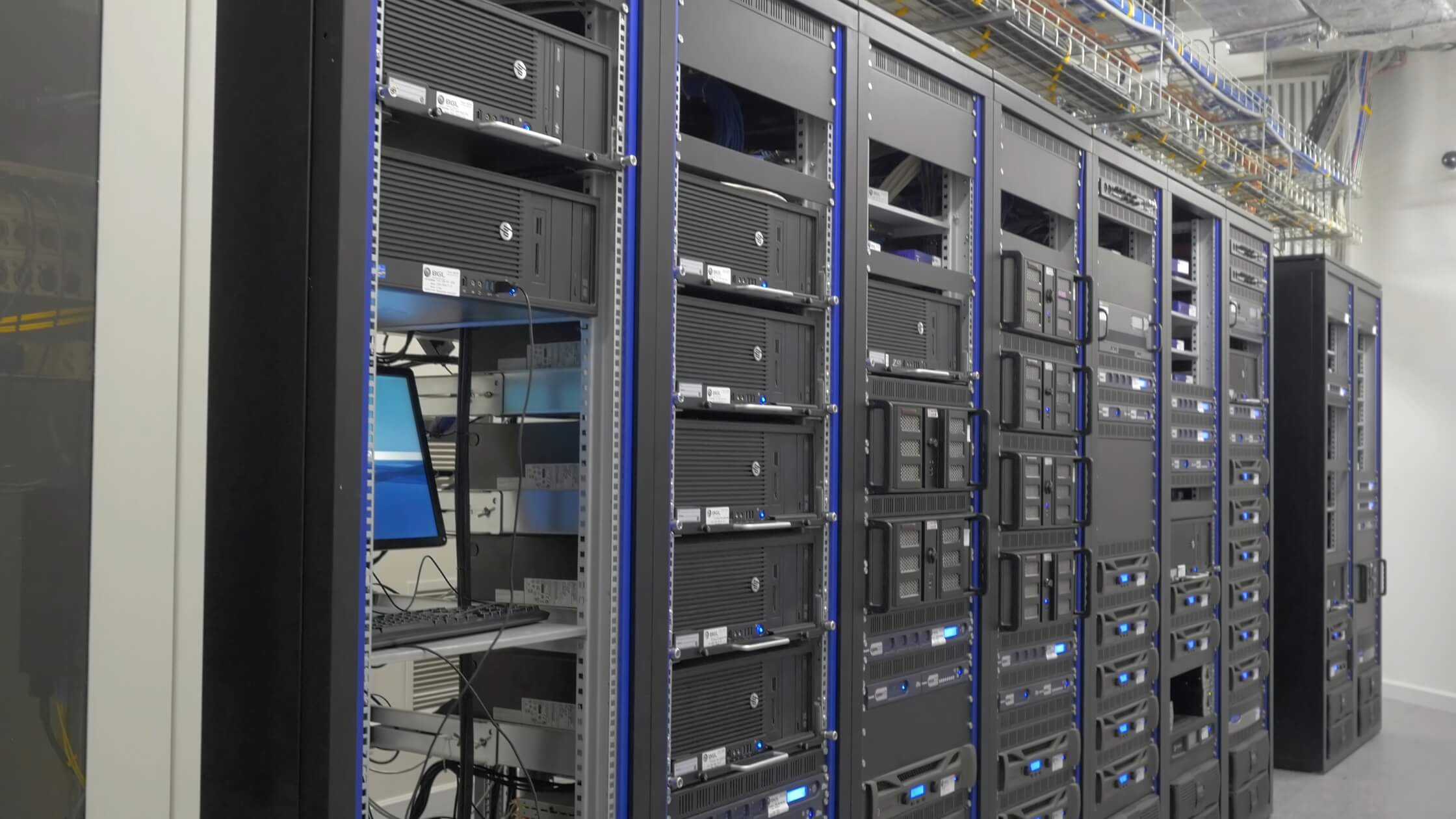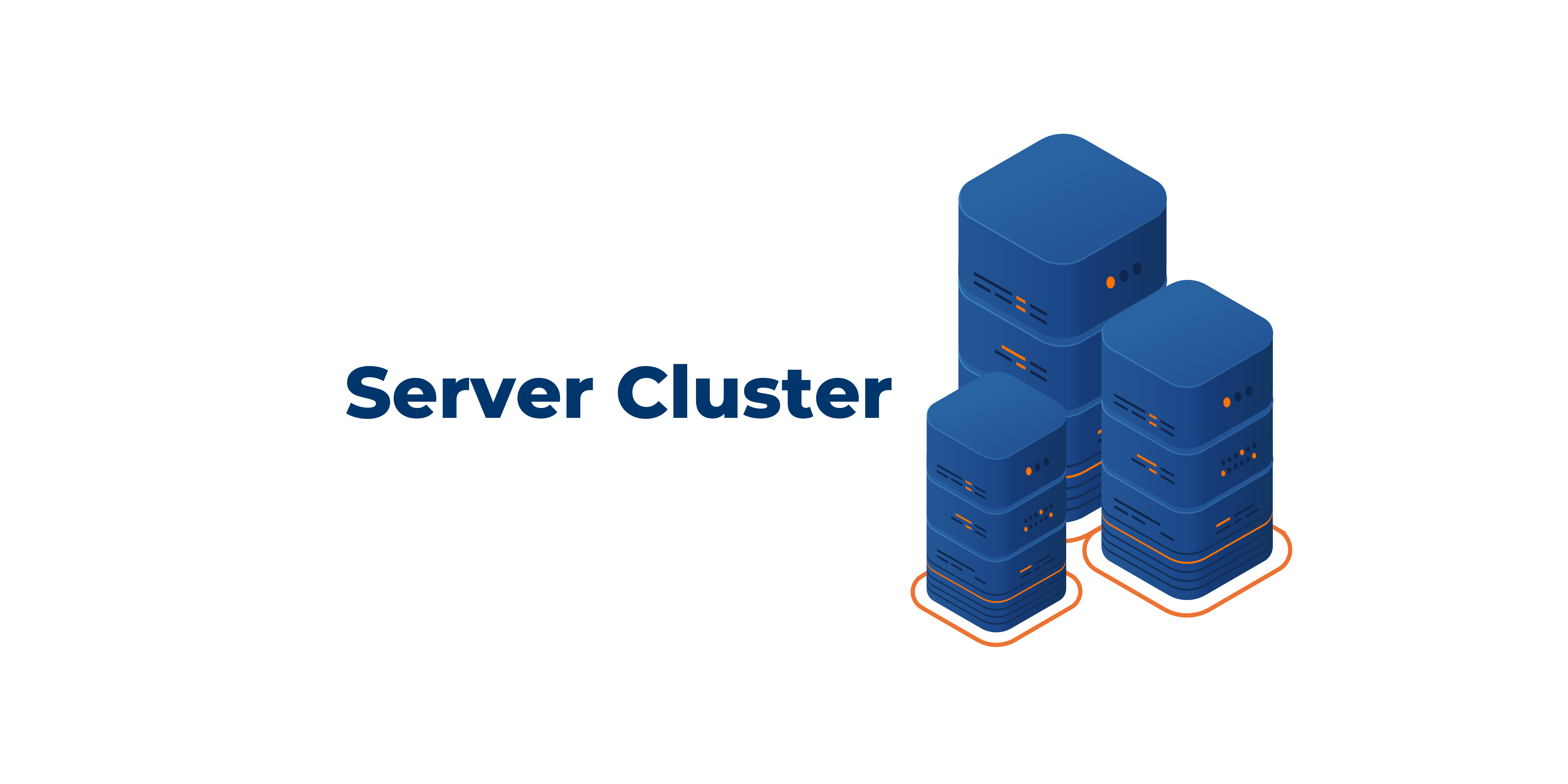In today’s fast-paced digital landscape, online stores face the constant challenge of managing increasing traffic volumes and large databases. The need for a hosting solution that balances high performance and scalability has never been greater. To tackle these challenges we are proud to launch Hypernode cluster hosting, and play a game changing role in the future of ecommerce. In this deep-dive we’ll explore the ins and outs of Hypernode cluster hosting, helping you unlock its full potential!
What is cluster hosting?
Cluster hosting is a multi-server approach where several servers form a cluster, working together harmoniously to host a website. If any server running an application encounters issues or experiences downtime, the other servers can quickly replace it ensuring consistent website availability. Websites with consistent high traffic levels or those experiencing large traffic fluctuations, for example during sales or promotions, benefit the most from cluster hosting.
How cluster hosting works in practice
Each website hosted in the cluster receives its own resources. Each therefore has its ‘own’ CPU, HDD or SSD, and RAM. A load balancer evenly distributes any incoming request across the servers in the cluster. This load balancer intelligently assigns the request to the server it estimates is best suited to handle it. This ensures that every website running on the cluster receives optimal resources without overwhelming any individual server.
Understanding Hypernode’s managed cluster
By default, a Hypernode operates as a single-server setup, providing lightning-fast performance and minimal latency between services. However, as your online store’s traffic and data demands grow, it’s time to explore the benefits of a cluster setup. In a cluster, multiple servers collaborate, each with specific roles, offering a tailored solution that can be scaled to meet your precise requirements. This unified hosting platform combines a variety of servers, both cloud-based and dedicated, to meet your specific needs.
This isn’t something that needs to remain a vague concept for you. All Hypernodes within the same cluster are interconnected. You can use the CLI commands “hypernode-cluster-map” and “hypernode-cluster[1] -info” to offer visualisations and detailed overviews of your cluster’s state, ensuring a transparent and efficient hosting environment. You also gain a concrete understanding for how your cluster operates.
Cluster vs. single server: balancing performance and flexibility
Choosing between a single-server setup and a cluster setup involves a trade-off between performance and flexibility. A single server offers unmatched speed, while a cluster setup allows scalability by adding more servers. However, a cluster setup may introduce slightly higher latency between services, resulting in a marginal performance trade-off.
Taking a look under the hood
● Blazing-Fast SSD Drives: Hypernode clusters harness cutting-edge hardware with ultra-fast SSDs, ensuring top-tier performance.
● Horizontal Scaling: Adding new servers to your cluster is a breeze, allowing you to meet evolving demands with a simple click.
● Central NFS Hub: A shared file system central to all servers ensures efficient data access and sharing.
● Failover Capabilities: Enhance your database or load balancer with failover options, preventing single points of failure.
● Private LAN Network: Transfer data at lightning speed within your internal network through a robust 10GB switch private LAN Network.
● Server-Agnostic: Deploy servers worldwide, creating a low-latency, resilient global cluster setup.
Tailoring your cluster: application server and database server
Cluster configurations can take different forms, but the simplest involves deploying a dedicated database server alongside an application server. This optimised resource allocation empowers online stores to handle higher traffic loads efficiently. At Hypernode, this setup is streamlined through our user-friendly Control Panel.
Expanding your cluster with load balancers
Elevate your cluster’s performance by incorporating load balancers, which distribute incoming traffic evenly across multiple application servers. Hypernode leverages load balancers to serve static content, often in conjunction with Varnish, a popular choice for platforms like Magento or Shopware. Varnish is a HTTP accelerator which can be used as a caching reverse-proxy for web servers by caching static files and instantly serving them when requested. Varnish contributes to speed, peak resilience, and efficient resource utilisation.
Mitigating single points of failure: your safety net
In a hosting cluster, each server plays a unique role. If one server experiences downtime for any reason, it can disrupt the entire cluster’s balance. Hypernode offers a range of failover options to ensure your online store remains operational. By having alternative servers ready to take over, you eliminate downtime and any and all associated disruptions.
The extra mile: additional services
● Grafana Dashboard: Gain real-time insights into crucial metrics, allowing you to monitor your cluster’s performance.
● Cloudflare: Utilise Cloudflare as a Content Delivery Network (CDN) to distribute your website’s assets globally, optimising content delivery.
● WAF (Web Application Firewall): Hypernode’s self-learning firewall is adept at detecting and blocking unwanted traffic, enhancing your online store’s security.
● Specialists: Our expert team handles cluster setup and migration, ensuring a seamless transition with minimal hassle.
● Automatic Backups: Rest easy with daily automated backups of each Hypernode, guaranteeing data security.
● Autohealing: Hypernode’s hosting platform is equipped to identify and resolve issues independently, minimising disruptions and downtime.
● Seamless Upgrades and Downgrades: With Hypernode, you enjoy the flexibility to upgrade or downgrade your hosting plan at any time, whether you’re using a single server or a cluster.
● Wireguard, Secure Communication: Communication within the cluster is secured through Wireguard, facilitating efficient and safe data exchange between Hypernodes. These private IP addresses are accessible only within the cluster, enhancing security and efficiency.
Amplifying bandwidth: a private network switch
Hypernode offers a private network option, providing a dedicated channel for high-bandwidth communication between Hypernodes within the same cluster. This is particularly valuable for online stores with substantial data transfers or internal traffic. The private network assigns a unique private network IP address to each Hypernode, ensuring fast and secure data transfer. When available, Hypernode configures the use of the private network over Wireguard connections, optimising bandwidth for seamless communication.
In conclusion: elevating your web hosting experience
Hypernode cluster Hosting is not just a hosting solution; it’s a gateway to unparalleled web performance. Whether you’re a budding online store or an established e-commerce powerhouse, the potential of a managed cluster is at your disposal. With Hypernode, you’re not just hosting your online store; you’re unleashing a new era of performance, resilience, and scalability.
Prepare to elevate your web hosting experience with Hypernode cluster hosting.
Learn more about Hypernode cluster hosting, or contact us to find out more!
Hi! My name is Dion, Account Manager at Hypernode
Want to know more about Hypernode's Managed E-commerce Hosting? Schedule your online meeting.
schedule one-on-one meeting +31 (0) 648362102





